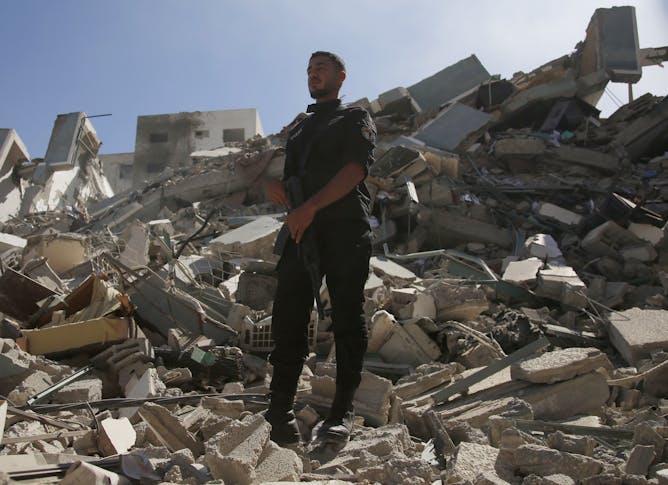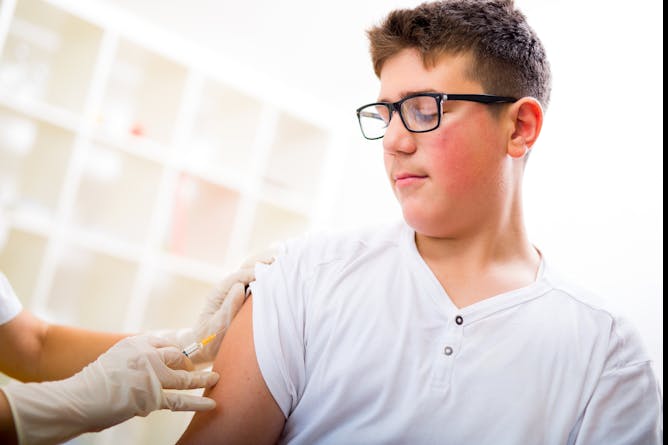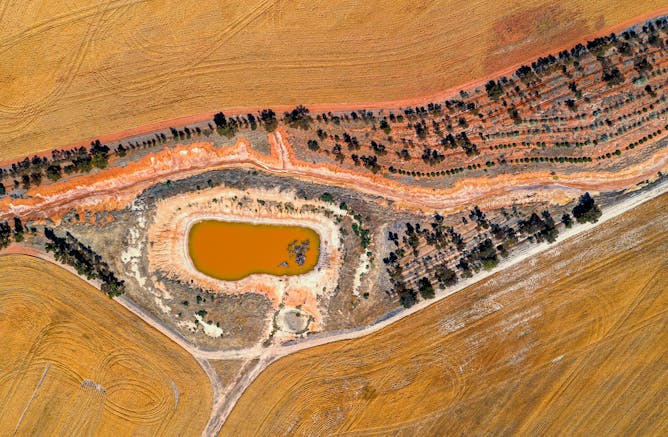|
|
|
|
The International Criminal Court’s main prosecutor warned last week against any war crimes or crimes against humanity being committed in the current outbreak of violence between Israel and the Palestinians.
“These are events that we are looking at very seriously,” she said. And any possible atrocities could be investigated.
But as international law expert Amy Maguire explains, accountability for alleged crimes will likely remain elusive.
The enduring Israel-Palestine conflict — as well as the question of Palestinian statehood itself — has been a “perennial dilemma” of the international legal system since the 1940s. Politics is usually to blame.
The ICC has signalled a willingness to put both sides on notice in the conflict, however. Earlier this year, it opened a formal investigation into potential war crimes committed by both Israeli soldiers and Hamas dating back to 2014.
Whether the international community can come together now to put an end to the current violence, though, remains to be seen.
At The Conversation, we try to raise up reasoned voices against the clamour of misinformation that so often dominates our news cycle. And it’s our generous, civic-minded readers who help make this possible. If you’ve already given to our 2021 donations campaign, thank you. If you haven’t yet, please let today be the day you donate. No gift is too small.
|
Justin Bergman
Deputy Editor: Politics + Society
|

|
|

Hatem Moussa/AP
Amy Maguire, University of Newcastle
Despite the International Criminal Court opening an investigation into potential war crimes dating back to 2014, legal accountability will likely remain elusive.
|

Shutterstock
Christopher Blyth, The University of Western Australia; Peter Richmond, The University of Western Australia; Ushma Wadia, Telethon Kids Institute
The Unites States and Canada have approved the Pfizer vaccine for adolescents aged 12–15. The evidence so far tells us it works well and is safe for this age group.
|

Shutterstock
John Hawkins, University of Canberra
Tesla's stance has also shone the spotlight further onto the carbon footprint of cryptocurrency – an issue that will not go away soon.
|

An almost-dry dam, surrounded by wheat fields, in WA’s wheatbelt region.
Shutterstock
Alison O'Donnell, The University of Western Australia; Edward Cook, Columbia University; Pauline Grierson, The University of Western Australia
Our research found that in 700 years, the 20th century was the wheatbelt's wettest. This means all our drought predictions are skewed.
|
Health + Medicine
|
-
Nicole Lee, Curtin University; Jarryd Bartle, RMIT University
Preventing drink spiking is a collective responsibility, not something to be shouldered by potential victims.
|
|
Environment + Energy
|
-
Kevin Burns, Te Herenga Waka — Victoria University of Wellington
A colony-building fern that grows in treetops on Lord Howe Island has adopted a lifestyle similar to social insects, turning our understanding of the evolution of biological complexity on its head.
|
|
Education
|
-
Agata Mrva-Montoya, University of Sydney; Edward Luca, University of Sydney
Expectations that academics raise funds themselves and aim to publish in certain 'quality' publications are shaping research and where it is published.
|
|
Arts + Culture
|
-
Dr Jamie Q Roberts, University of Sydney
Addressed to a 'fair youth' and later, 'a dark lady', the sonnets are less well known than Shakespeare's plays. A journey into them is an unsettling and beguiling literary adventure.
-
Henry-James Meiring, The University of Queensland
Leaving our earthly bodies and living forever as a machine isn't just a thing of modern science fiction. These transhumanist ideas date back to the 18th century.
|
|
Business + Economy
|
-
Nathalie Collins, Edith Cowan University
Social media algorithms are akin to a licence to promote junk food or tobacco to children.
-
Dimitria Groutsis, University of Sydney
We've developed a new, practical guide for Australians organisations wanting to ask better questions about their diverse customers and employees.
-
Isaac Gross, Monash University
Lowering the tax rates on profits from patents registered in Australia is unlikely to increase local research and development. But it will be a gift for multinationals.
|
|
Politics + Society
|
-
Adrian Beaumont, The University of Melbourne
Governments rarely experience a big bounce after budgets - and this year's seems to be no exception.
-
Patricia A. O'Brien, Georgetown University
With a recent election declared void and another snap election called, the Pacific nation seems to be spiralling away from democracy once again.
|
|
| |
Featured jobs
|

|
|

|
— Canberra ACT, Australia
|

|
— Townsville QLD, Australia
|

|
— South Wharf VIC, Australia
|
|
|
|
| |
| |
| |

|
| |
| |
| |
Featured Events & Courses
|

|
191 Boundary St, West End, Queensland, 4101, Australia — The Conversation
|

|
15 Broadway, Ultimo, New South Wales, 2007, Australia — University of Technology Sydney
|

|
Online, Workshop, Victoria, 3000, Australia — Australia and New Zealand School of Government (ANZSOG)
|

|
15 Broadway, Ultimo, New South Wales, 2007, Australia — University of Technology Sydney
|
|
|
|
| |
| |
| |
| |
| |
|
|
|
|
|
|
|